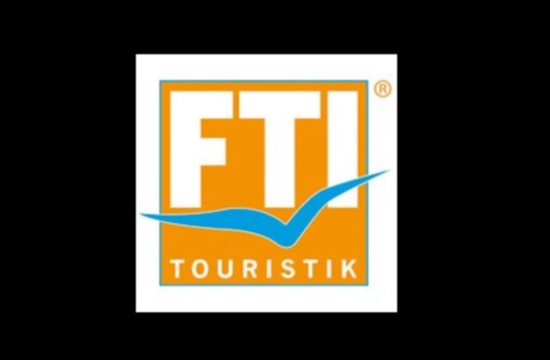Concerns Arise Over FTI’s Viability: Analysis of the German Tour Operator’s Financial Troubles
On Friday, Tornos News reported significant concerns regarding the viability of FTI, one of Germany’s leading tour operators, as expressed by the Union of Independent Travel Agencies in Germany (VUSR). These worries center around the financial difficulties facing the company and call into question its reliability as a business partner for travel agencies.
Impact on Travel Agencies
George Pelekanakis, the president of the Panhellenic Association of Hotel Directors, emphasized the importance of FTI to destinations like Crete. Speaking to the Heraklion-based newspaper Patris, he articulated, "FTI brings thousands of tourists to Crete." Moreover, he noted the company’s dealings with numerous hotels on the island, revealing that FTI has debts amounting to millions owed to local businesses. He concluded with an air of uncertainty, remarking, "We are in a state of anticipation."
Seasonal Expansion Plans
In light of these financial concerns, FTI has announced an extension of its tour season in Crete and Rhodes, scheduling services for the Spring and November periods. This move will include approximately 150 available hotels on both islands outside peak travel times, alongside corresponding air travel connections. Such efforts are likely aimed at sustaining business during off-peak seasons and maintaining tourist influx.
Investment Search Ongoing
As reported on September 25, 2023, FTI is actively seeking investors to secure new capital that can facilitate its digital transition. The firm has ambitions to complete obligations related to the government support it received during the pandemic. Initial discussions with potential investors are already underway, as the company strives to safeguard its future.
Financial Backing and Debt Challenges
The primary stakeholder of FTI is the Sawiris family, an influential Egyptian business family. Throughout the COVID-19 pandemic, the group benefited from government subsidies, accumulating a support total of €242.1 million from the German Stabilization Fund (WSF).
FTI has secured two loans from this fund, with the first being valued at €235 million and a subsequent loan of €118 million. As of April 2022, it was reported that only €99.3 million were utilized from the second loan, with the group allegedly failing to receive the remaining €18.7 million. Thus far, €40.4 million has been repaid toward the initial loan, demonstrating ongoing challenges in managing these financial obligations.
Merger Talks
Earlier this year, discussions emerged regarding a potential merger between FTI and DER Touristik. However, details of those negotiations have not been disclosed, leaving many questions unanswered about the possible future consolidation of these two prominent players in the travel industry.
Positive Trends Amidst Challenges
Despite these overarching concerns, FTI has portrayed its winter season booking trends as encouraging. The company reports benefiting from a positive trajectory in the German market. For this financial year, concluding at the end of October, FTI is forecasting a positive sales outcome, projecting revenues to reach approximately €4.1 billion.
Bookings for the 2024/25 winter season are reportedly seeing an increase of 26% compared to previous year levels, even in the face of rising prices. These indicators suggest that while challenges abound, there is still robust demand for travel services.
Stakeholder Sentiments
The sentiments articulated by George Pelekanakis underscore the precarious position that many travel agencies find themselves in due to FTI’s financial state. "We are all watching closely," he noted, reflecting the concerns felt across the industry. The viability of FTI is essential not just for the tour operator itself, but for countless partnerships creating interdependencies throughout the travel landscape.
Future Prospects for FTI
Looking ahead, the future of FTI remains uncertain as it navigates this tumultuous landscape marked by financial uncertainty and the hope of securing new investments. The implications of either success or failure will undoubtedly resonate throughout the European travel sector, affecting not only business partners and stakeholders but tourists themselves who rely on consistent service and competitive pricing.
The Digital Shift
The ongoing digital transformation is another critical aspect for FTI as it strives to modernize its operations. Emphasis on embracing technology and innovating customer experiences is paramount. As digitalization continues to reshape industries, companies like FTI find themselves at a crucial juncture where adapting effectively could mean the difference between thriving and merely surviving.
Local Economy Considerations
The impact on local economies, particularly in regions like Crete, cannot be overlooked. The reliance on companies like FTI to bring significant tourist traffic highlights the interconnectedness of global travel and regional economic health. Any disruption in service can have cascading effects for hotels, restaurants, and local attractions reliant on tourist spending.
Monitoring the Situation
Travel agencies and stakeholders must vigilantly monitor developments concerning FTI. Decisions related to investments, mergers, and strategic pivots will invariably affect how the market responds as a whole. The outcomes of these efforts will shape not only the future of FTI but also the landscape of the travel industry in the months and years to come.
Conclusion
In summation, concern over FTI’s financial sustainability raises vital questions about the future of one of Europe’s leading tour operators. As the company seeks investors and grapples with obligations from government support during the pandemic, the ramifications will be felt deeply across travel agencies, stakeholders, and destinations reliant on tourism. With ongoing efforts to extend seasonal offerings and adapt to changing dynamics in the market, the path forward remains fraught with uncertainty yet brimming with potential opportunities for revitalization and growth in a post-pandemic travel world.






















